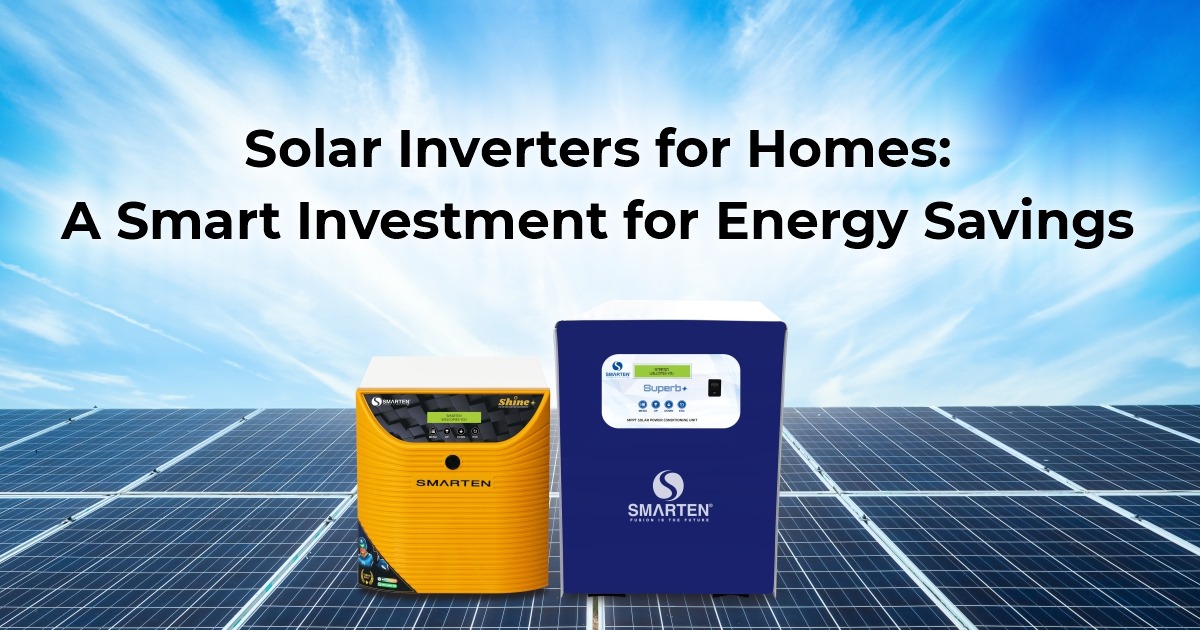
As the demand for sustainable energy solutions rises, more homeowners are making the switch to solar power. Among the key components of a residential solar system, the solar inverter plays a vital role. It acts as the heart of the system, converting the sun’s energy into usable electricity for your home. But beyond its technical function, a solar inverter can also be seen as a smart investment that leads to substantial energy savings and long-term benefits.
A solar inverter is a device that converts direct current (DC) electricity generated by solar panels into alternating current (AC), which is used by most home appliances. Without an inverter, the solar energy collected cannot be effectively utilized in a typical household.
There are three main types of solar inverters used in residential settings:
1. Significant Reduction in Electricity Bills
Solar inverters enable the use of solar energy in real-time. This means you draw less power from the grid, lowering your monthly utility bills. In regions with net metering policies, excess electricity generated can be fed back into the grid for credits, further offsetting costs.
2. Increased Energy Efficiency
Modern solar inverters come with high-efficiency ratings, typically over 95%, which ensures that minimal energy is lost during conversion. This efficient use of energy directly translates into more savings over time.
3. Enhanced Property Value
Homes equipped with solar energy systems, especially those with high-performance inverters, often see an increase in property value. Prospective buyers view solar-equipped homes as modern, eco-conscious, and cost-effective, making them more attractive in the real estate market.
4. Reliable Backup Power
Hybrid solar inverters paired with battery storage can provide power during outages, ensuring your household remains functional during grid failures. This added reliability is crucial for homes in areas with unstable electricity supply.
5. Government Incentives and Subsidies
Many governments offer incentive and subsidies for solar installations, making the upfront cost of solar inverters more affordable. These financial benefits make solar inverters a wise investment for long-term savings.
6. Eco-Friendly and Sustainable
Solar inverters support the use of renewable energy, significantly reducing your carbon footprint. Choosing solar energy over traditional fossil fuels helps combat climate change and supports a cleaner, greener planet.
Solar inverters typically have a lifespan of 10–15 years, though many high-quality models can last even longer with proper maintenance. Routine inspections, software updates, and cleaning can help maintain peak performance. Investing in a durable inverter means fewer replacements and better returns over time.
When selecting a solar inverter for your home, consider the following factors:
For homeowners in India, brands like Smarten offer reliable and efficient solar inverters tailored for local conditions. Known for their durability, high efficiency, and affordability, Smarten inverters support both grid-tied and off-grid solutions. Whether you’re looking to power a small home or a larger setup, Smarten has options ranging from basic models to advanced hybrid inverters.
Investing in a solar inverter for your home is not just a step toward reducing electricity bills—it’s a move toward energy independence, environmental responsibility, and enhanced property value. As solar technology continues to evolve, inverters are becoming smarter, more efficient, and more affordable, making now an ideal time to make the switch.
Choose a trusted brand like Smarten and take control of your energy future. With a high-performance solar inverter, you’re not just saving money—you’re powering a brighter, greener tomorrow.